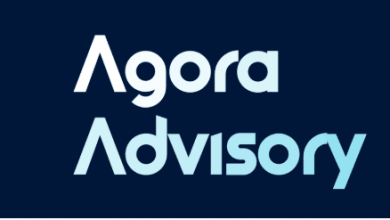Understanding Your Legal Rights When Collecting Debt in Australia

Debt collectors in Australia must follow strict rules and limitations when pursuing money you owe. The law allows debt collection, but collectors cannot use physical force, coercion, harassment or exploit any vulnerability.
Knowledge about Australian debt collection practises helps you handle these situations confidently. Professional Brisbane debt collectors and agencies across the country operate under oversight from the Australian Securities and Investments Commission (ASIC) and Australian Competition and Consumer Commission (ACCC). These bodies establish clear guidelines for acceptable practises. Debt collectors can only contact you during specific hours, 7:30 am to 9 pm on weekdays. They cannot make more than three phone calls weekly or ten calls monthly. A collector’s visit to your home should be their final option.
This piece explains debt collectors’ legal rights, their working methods in Australia, and the professional standards that guide effective collection attempts. You’ll also learn about the regulatory framework that ensures fair and ethical debt recovery practises.
Debt collection starts when people can’t keep up with their payments. Let’s look at what debt collection really means, who these collectors are, and how they work under Australian rules.
What is debt collection?
Debt collection is about getting payments from people and businesses who haven’t stuck to their loan agreements. It usually starts when someone misses payments on their loans, credit cards, or other bills. These collection firms help with different services. They work on contingent fees, buy debt portfolios, train others in collection, and handle credit, hardship, and insolvency cases.
The collection process has several steps. It starts with asking for payment, moves to formal demands, might go to court if the debt isn’t paid, and could end up with enforcing a judgement. So knowing these steps helps collectors operate effectively and within legal boundaries.
Who are debt collectors?
Debt collectors can be people or companies that work to collect debts for payment. They try to get money that’s owed to others and sometimes take back goods or property (except real estate). Australia has two main types of debt collectors:
Representatives or agents – They collect for creditors and get paid a fee or percentage of what they collect
Debt purchasers – These companies buy bad debts cheap from creditors and try to collect the full amount
Australia’s debt collection business is big. More than 500 companies offer collection services and make up to 65 million attempts to contact people yearly. On top of that, many companies now send customers to collectors about 45 days sooner than they used to.
How do debt collectors work in Australia?
Australian debt collectors must follow strict rules set by the ACCC and ASIC. These organisations created guidelines to make sure collectors follow consumer protection laws.
Collectors can reach out through phone calls, letters, emails, social media, or show up in person. The rules are clear about when they can contact you. Phone calls are allowed between 7:30 am and 9 pm on weekdays, and 9 am to 9 pm on weekends. They can’t call more than three times a week or ten times a month.
Collectors should only contact you for good reasons like:
- Asking for payment
- Setting up payment plans
- Checking on existing arrangements
- Finding out why you haven’t responded
- Telling you what happens if you don’t pay
Face-to-face visits are a last resort and should happen only between 9 am and 9 pm any day. Over the last several years, the industry has changed. It’s moved from aggressive tactics to more helpful approaches that focus on working with people and teaching them about their options.
Australian law is clear. Collectors can’t use force, harassment, misleading practises, or take advantage of vulnerable people. They must protect your personal information and treat you fairly and respectfully.
Legal Rights and Responsibilities in Debt Collection
Understanding the legal framework helps debt collectors operate professionally while maintaining compliance with Australian regulations.
What can a debt collector do legally?
Debt collectors have several legitimate ways to pursue payment. The law allows them to:
- Share details about the account and outstanding amount
- Request payment
- Explain the consequences of non-payment
- Set up or modify repayment plans
- Ask why the debtor hasn’t responded
- Track down debtors who moved without providing forwarding details
- Check or recover secured property (like a vehicle) with proper legal authority
Australian regulations recognise debt collection as a valid business practise to help recover payments from people who must pay their debts. Debt collectors must protect debtor privacy throughout this process.
When and how can they contact debtors?
Rules strictly control when and how often debt collectors reach out. They can call only between 7:30 am and 9 pm on weekdays, and 9 am to 9 pm on weekends. The rules limit them to 3 phone calls weekly or 10 monthly.
Face-to-face meetings should happen between 9 am and 9 pm Monday through Friday and weekends. In spite of that, home visits should be the last option, only if other methods fail or the debtor requests a visit.
Contact at work must stick to the debtor’s regular hours (if known), or between 9 am and 5 pm on weekdays. Debt collectors should stop workplace contact if the debtor requests this and provides alternative contact details.
Collectors can use email and social media only when they know the account isn’t shared and messages stay private.
What debt collectors cannot do
The law draws clear lines about unacceptable collection practises. Debt collectors must never use force, coercion, or harassment. Threats of harm or abusive language are forbidden.
Debt collectors cannot:
- Use deceptive practises (like sending fake court documents or calling unpaid debts crimes)
- Take advantage of vulnerabilities, disabilities or special circumstances
- Contact debtors too often or inappropriately
- Discuss the debt with third parties without consent
- Misrepresent the debt’s nature or size
- Enter or threaten to enter a property without authority
- Shame or intimidate debtors
Debt collectors cannot enter a debtor’s home without permission. They must leave when asked if granted entry. Trespassing or harassment at odd hours isn’t allowed.
Debt collectors cannot threaten imprisonment for owing money. They also can’t take or sell property without a mortgage, security, or court order.
Best Practises for Professional Debt Collection
Professional debt collectors follow established procedures to ensure effective and compliant recovery processes.
Verify debt validity
Collectors should confirm the debt is accurate before pursuing payment. This includes reviewing financial records to verify the amount and origin of the debt. Sometimes debts might be incorrectly assigned due to identity mix-ups or may have been paid already.
The timing matters for collection activity. Debts become “statute-barred” if no payments have been made in over 6 years (3 years in the Northern Territory). This means collectors can’t use courts to recover them. Professional collectors understand these limitations and work within appropriate timeframes.
Provide proper documentation
Australian regulations require collectors to provide verification when requested. Professional collectors should be prepared to supply:
- A copy of the original contract or agreement
- An itemised statement showing the amount and date of the debt
- Details of how the amount was calculated
- Records of all payments made
- Breakdown of principal, interest, fees, and any charges
Collectors must pause collection activities while providing this information. Professional agencies ensure they belong to external dispute resolution schemes like the Australian Financial Complaints Authority (AFCA). Most lenders and collectors are AFCA members, which can be verified on their website or by calling 1800 931 678.
Maintain thorough records
Good record-keeping is vital for professional debt collection in Australia. Each contact needs documentation:
- The date and time of communication
- The name of the person contacted and the collector
- How contact was made (phone, letter, email, in-person)
- Notes about discussions or agreements
Collectors should provide written confirmation of any payment arrangements. Keeping copies of all correspondence protects both parties legally and helps ensure everyone follows the rules. These records create clarity and serve as evidence if disputes arise.
Good records help resolve debt situations efficiently and demonstrate professional, compliant practises.
Handling Debt Disputes and Statute-Barred Debts
Professional debt collectors understand how to navigate disputed debts and respect legal limitations on collection activities.
Managing debt disputes
Debtors can challenge debts in several situations. The debt might not be legally enforceable if:
- The debtor never received the goods or services charged
- The debt was already paid
- Someone misled the debtor about the agreement
- Someone pressured the debtor into taking a loan (perhaps due to family violence)
- The creditor provided a loan the debtor couldn’t afford
- The contract or situation wasn’t fair
Professional collectors recognise when disputes arise and work cooperatively to resolve them. Financial counsellors often help debtors understand their options.
Understanding statute-barred debts
The statute of limitations protects consumers from old debt collection attempts. Most Australian states give creditors six years to start court action to recover money (though the Northern Territory only allows three years). Debts become “statute-barred” after this time passes.
The time limit starts from whichever happened last:
- The last payment date
- The first missed payment or default notice date
- The date the debtor confirmed the debt in writing
Professional collectors understand that small payments or written confirmations can restart the time limit. Ethical collection agencies respect these limitations and provide clear information about debt status.
Handling identity verification
Sometimes debtors are contacted about debts they don’t recognise due to mistaken identity. Professional collectors should be prepared to provide:
- Original contract copies
- Account statements showing their calculations
- Records of demand letters or court papers
- Proof of any written confirmations
Professional collectors understand that debtors should never admit to owing unrecognised debts. Ethical agencies pause legal action for at least 28 days while debtors verify information.
Regulatory Oversight and Industry Standards
The debt collection industry operates under strict regulatory oversight to ensure fair and ethical practises.
Free financial counselling services
Not-for-profit community organisations provide free and confidential financial counselling that debtors can access. The National Debt Helpline (1800 007 007) runs on weekdays from 9:30am to 4:30pm and offers live chat Monday to Friday, 9:00am to 8:00pm. Calls connect directly to state services.
The Mob Strong Debt Helpline (1800 808 488) gives specialised legal advice about money matters to Aboriginal and Torres Strait Islander peoples. Business owners who face money troubles can reach out to the Small Business Debt Helpline at 1800 413 828.
Financial counsellors help debtors negotiate with creditors and advocate with government organisations. They explain how debt recovery works and help create budgeting plans.
Legal aid and community legal centres
Australia’s network of 160 community legal services delivers mostly free advice and legal support. These independent non-profit groups help with civil and family law problems, including credit and debt matters.
Each state and territory’s Legal Aid agency provides free legal advice. The National Self Representation Service connects people with lawyers who explain court rules and help prepare documents for court-related issues.
Regulatory bodies: AFCA, ASIC and ACCC
The Australian Securities and Investments Commission (ASIC) handles financial service debts like credit cards and loans. The Australian Competition and Consumer Commission (ACCC) manages complaints about non-financial debts such as telephone and utilities.
The Australian Financial Complaints Authority (AFCA) resolves disputes with financial firms independently. AFCA reviews cases of misleading conduct, non-disclosure, credit reporting and financial hardship. Financial firms must stop collection activities once AFCA registers a complaint.
Professional debt collectors maintain memberships with these regulatory bodies and follow their guidelines to ensure ethical, compliant operations.
Conclusion
Professional debt collection in Australia operates within a comprehensive regulatory framework designed to balance creditor rights with consumer protections. Understanding these regulations is vital for effective and ethical collection practises.
Debt collection is perfectly legal, but collectors must operate within clear boundaries. They can’t harass debtors, use physical force, or contact them at unreasonable hours. Regulations limit communication attempts and require respect for debtor privacy throughout the process.
Professional collectors always verify debt validity before pursuing payment. They provide detailed documentation and maintain complete records of all interactions. This approach ensures compliant practises and creates valuable evidence for potential disputes.
Old debts need extra attention, especially those approaching the six-year statute of limitations (three years in Northern Territory). Professional collectors understand that payment activity on these debts can restart the clock and extend the collection period substantially.
The debt collection industry benefits from regulatory oversight by bodies including AFCA, ASIC, and ACCC. These organisations play vital roles in maintaining fair collection practises and protecting both creditors and consumers.
Professional debt collection balances effective recovery with ethical practises. Operating within the regulatory framework helps collectors achieve successful outcomes while maintaining the dignity and respect that everyone deserves, whatever their financial circumstances.

Source: Understanding Your Legal Rights When Collecting Debt in Australia




